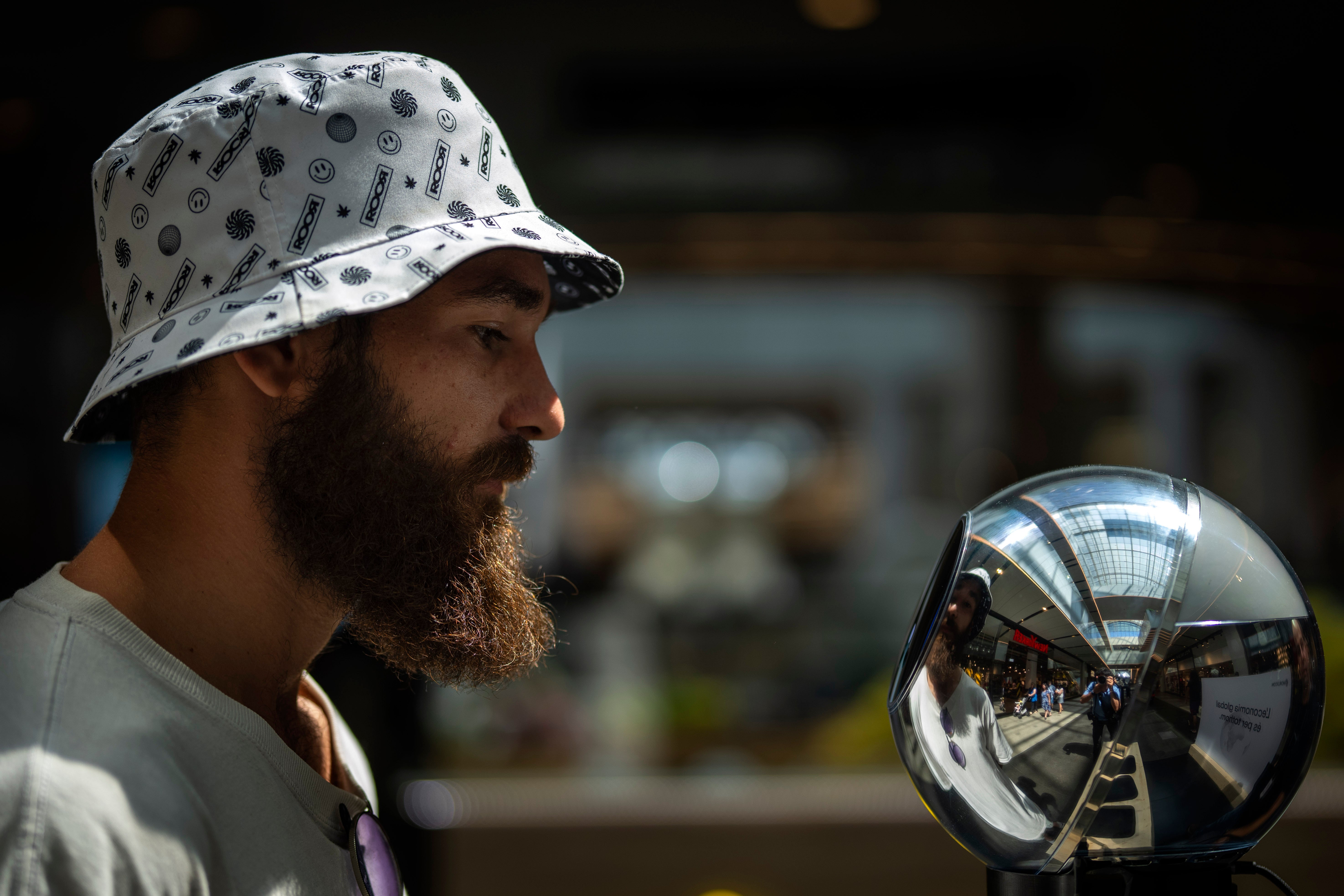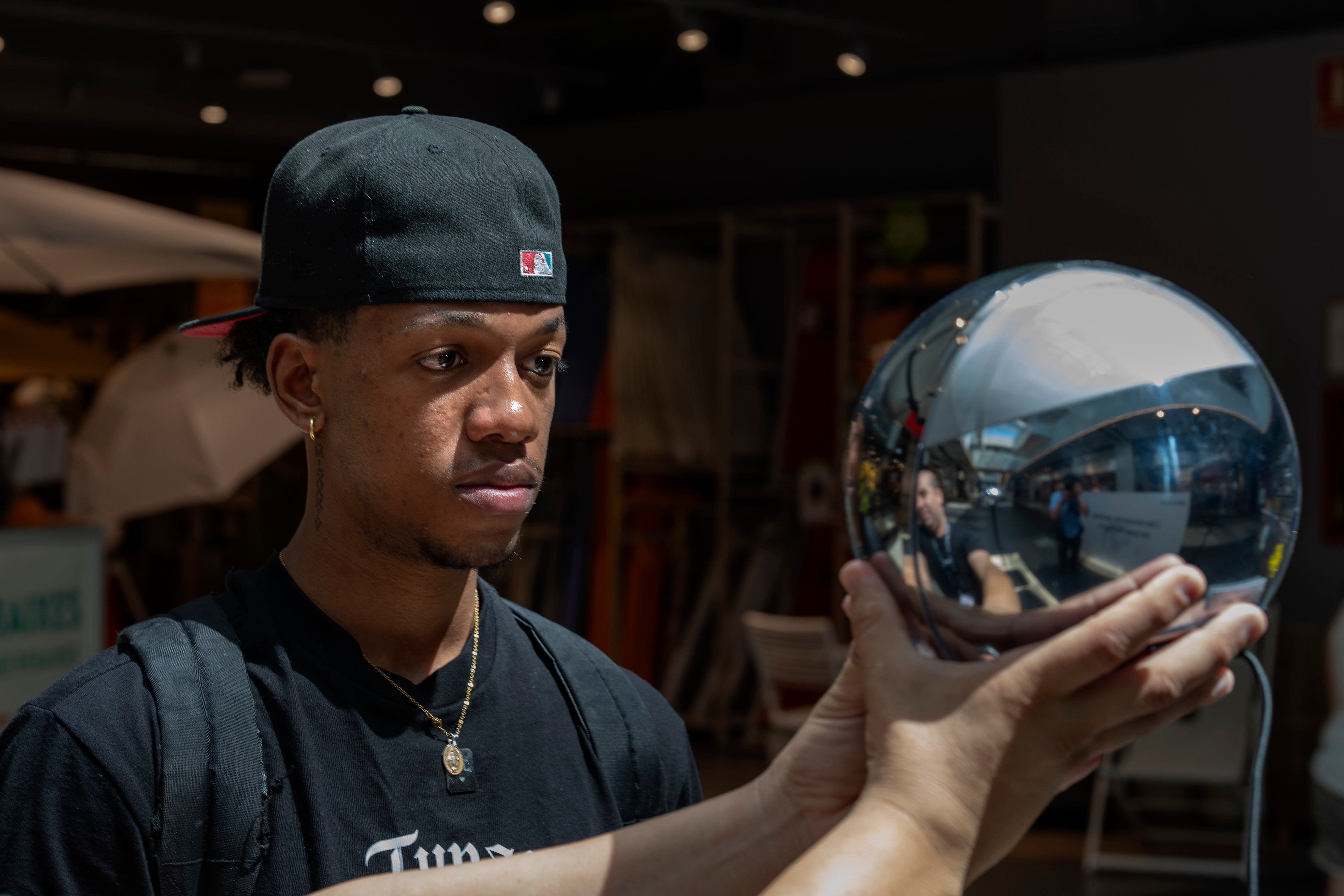Spain bans Worldcoin’s eyeball scanning crypto machines
Spain’s privacy watchdog has ordered for Worldcoin to cease its operations

Your support helps us to tell the story
From reproductive rights to climate change to Big Tech, The Independent is on the ground when the story is developing. Whether it's investigating the financials of Elon Musk's pro-Trump PAC or producing our latest documentary, 'The A Word', which shines a light on the American women fighting for reproductive rights, we know how important it is to parse out the facts from the messaging.
At such a critical moment in US history, we need reporters on the ground. Your donation allows us to keep sending journalists to speak to both sides of the story.
The Independent is trusted by Americans across the entire political spectrum. And unlike many other quality news outlets, we choose not to lock Americans out of our reporting and analysis with paywalls. We believe quality journalism should be available to everyone, paid for by those who can afford it.
Your support makes all the difference.Spain has put a ban on eyeball crypto exchange technology.
The European country’s privacy watchdog has ordered for Worldcoin, the company created by OpenAI CEO Sam Altman that scans eyeballs to make digital IDs in exchange for crypto, to cease its operations in the country for three months amid concerns over what it is doing with users’ personal information.
The stated goal of Worldcoin is to give people a form of identification that could never be stolen or duplicated. It says the way it can do this is by creating a “World ID” by scanning someone’s eyeballs through “orbs” — a device that captures an image of their irises, the colored parts of the eyes.
In exchange, people who sign up get Worldcoin cryptocurrency.
Spain’s Agency for Data Protection told Worldcoin’s parent company Tools for Humanity Corporation on Wednesday to stop collecting personal data and keep hold of all information already collected.

The agency said in a statement that it had received various complaints against the company that range from gathering the personal information of minors to not allowing for people to withdraw their consent to sharing personal data.
People have lined up at points where these orbs are placed in cities like Madrid and Barcelona in recent months. More than 360,000 people in Spain have signed up for Worldcoin, according to the most recent company data from November.
While Worldcoin argues that the data is used to create a unique, secure form of identification, privacy experts have concerns that the company may use the information in other ways, like personalized marketing.
That has led other countries to investigate Worldcoin’s operations, including France and Germany.
The Kenyan government has likewise suspended new sign-ups for Worldcoin as it investigates whether people’s information is being properly protected.
Worldcoin responded that their operations preserve privacy.
“The Spanish data protection authority (AEPD) is circumventing EU law with their actions today, which are limited to Spain and not the broader EU, and spreading inaccurate and misleading claims about our technology globally,” Jannick Preiwisch, Worldcoin’s data protection officer, said in a statement.

The goal of Worldcoin and the company backing it, Tools for Humanity, is to give people a form of identification that could never be stolen or duplicated. Worldcoin creates a “World ID” by scanning someone’s eyeballs through “orbs” — a device that captures an image of their irises, the colored parts of the eyes.
One possible use for such an ID would be online services, where oftentimes people are having to remember multiple passwords and usernames for various websites they have signed up for.
The security of those sites can be flawed, however, and there have been numerous security breaches where usernames and passwords have been stolen. Instead of using old technology like passwords, a person could just sign up using their World ID.
Subscribe to Independent Premium to bookmark this article
Want to bookmark your favourite articles and stories to read or reference later? Start your Independent Premium subscription today.